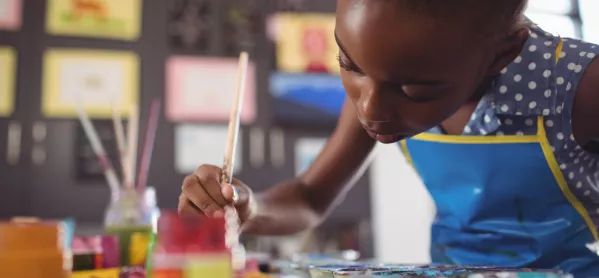- Home
- The arts will fuel education’s Covid recovery
The arts will fuel education’s Covid recovery

Shortly after the terrorist attacks of 9/11, Jonothan Neelands delivered a speech at the second International Theatre and Drama Education Conference in Athens. Neelands, now professor of creative education at the University of Warwick, made a very rational, yet passionately argued case for the arts as part of a rethink of curriculum “basics”. Almost 20 years later, as schools talk of “recovery’” in the midst of the coronavirus pandemic, this argument still resonates.
For too long, discussion around arts education has tended to focus on justifying the arts’ place in the curriculum, often by playing up their value in more general educational terms. The benefits the arts can bring to learning elsewhere in the curriculum are commonly cited and, increasingly, discourse centres around the relationship with health and wellbeing. It seems that the arts are no longer justifiable in their own rights. And yet…
The role of empathy in our response to the current crisis is essential. The recent reignition of the Black Lives Matter debate further underscores the importance of helping our children and young people develop empathy, respect and tolerance. In his speech, Neelands talks of the importance of empathetic imagination, and the powerful potential of the arts in nurturing this, as he urges us to consider what the “human purposes” of our teaching are.
Expressive arts: Why all pupils need access to arts education right now
Art of the solution: Is the curriculum stifling pupils’ love of the arts?
Citizenship: How to help students ‘channel outrage’ about the world
The Expressive Arts National Network Group is a collective of teachers, local authority representatives and initial teacher educators who aim to champion the arts in education. Our current challenge, as it is for all teachers, is to adopt rapidly evolving policies and figure out what “Covid constraints” means for learning spaces. We must reimagine what our lessons, courses and degree programmes will look like in socially distanced spaces, all while combating the recent challenges of physical, emotional and mental remoteness that sadly accompany social distancing.
With these changes comes a somewhat gloomy realisation that, inevitably, numeracy and literacy will be prioritised. Indeed, Scottish government guidance specifically states that these areas, along with health and wellbeing, will be the initial priority.
All is not lost, though, as the prospect of a “new way” after Covid-19 has provided a catalyst for important existential thoughts about the value of expressive arts in early learning centres (ELC), schools and colleges. Following an initial period of reconnection, focus will no doubt shift to attainment and progress scores. Our plea to educators, then, is to maintain the centrality of the expressive arts in our curricula.
In a 2018 interview, Neelands observed: “The tragedy is that the most disadvantaged children and young people are the ones that are the least likely to get access to the arts in the curriculum and extremely unlikely to get them as part of their home education. That is where the need is, but they are the ones that are under the most pressure to narrow the curriculum down to basic literacy and numeracy and therefore the arts get cut.”
If the tragic events of 9/11 shook the fabric of our society to the core, the 2020 coronavirus pandemic has taken that core and shattered it into a million pieces. What we now do with those pieces is up to us. Will we rebuild a replica of what once was - a narrowing curriculum with a focus on attainment and test scores that was failing to meet the needs of its most vulnerable learners? Or will we seize this chance for regeneration and renewal and build what Neelands calls a “humanising curriculum”, where the development of “compassion, empathy, tolerance, highly interpersonal skills and respect for difference” are central tenets? This cannot be achieved through the basics of literacy and numeracy alone.
Neelands states that in “times of crisis we turn to art as a necessary response”. We argue that the arts are necessary at all times and, when pupils return to their classrooms, the need to nurture the arts as an essential element of the curriculum will burn truer than ever.
Jane Catlin (University of Strathclyde), Nikki Doig (University of Dundee), Wilma Eaton (University of Strathclyde), Wendy Timmons (University of Edinburgh) and Paul Wickham (University of Strathclyde) are all lecturers in education
Contact n.z.doig@dundee.ac.uk to be added to the Expressive Arts National Network Group mailing list. Use the Twitter hashtag #ExpArtsMatters to join the conversation
Keep reading for just £1 per month
You've reached your limit of free articles this month. Subscribe for £1 per month for three months and get:
- Unlimited access to all Tes magazine content
- Exclusive subscriber-only stories
- Award-winning email newsletters